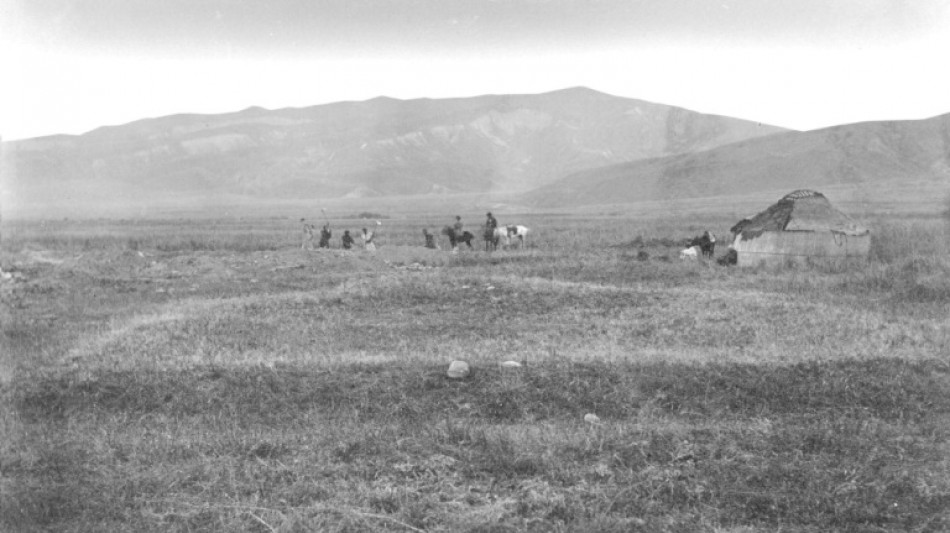
-
 Battling Forest see off Spurs to boost Champions League hopes
Battling Forest see off Spurs to boost Champions League hopes
-
'I don't miss tennis' says Nadal

-
 Biles 'not so sure' about competing at Los Angeles Olympics
Biles 'not so sure' about competing at Los Angeles Olympics
-
Gang-ravaged Haiti nearing 'point of no return', UN warns

-
 US assets slump again as Trump sharpens attack on Fed chief
US assets slump again as Trump sharpens attack on Fed chief
-
Forest see off Spurs to boost Champions League hopes

-
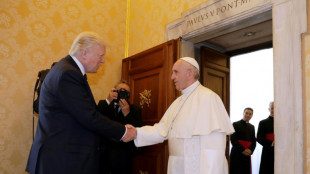 Trump says Pope Francis 'loved the world,' will attend funeral
Trump says Pope Francis 'loved the world,' will attend funeral
-
Oscar voters required to view all films before casting ballots

-
 Bucks' Lillard upgraded to 'questionable' for game 2 v Pacers
Bucks' Lillard upgraded to 'questionable' for game 2 v Pacers
-
Duplantis and Biles win Laureus World Sports Awards

-
 US urges curb of Google's search dominance as AI looms
US urges curb of Google's search dominance as AI looms
-
The Pope with 'two left feet' who loved the 'beautiful game'

-
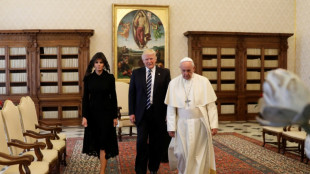 With Pope Francis death, Trump loses top moral critic
With Pope Francis death, Trump loses top moral critic
-
Mourning Americans contrast Trump approach to late Pope Francis
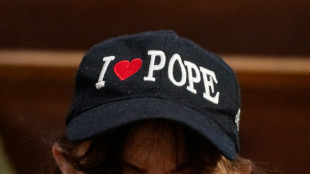
-
 Leeds and Burnley promoted to Premier League
Leeds and Burnley promoted to Premier League
-
Racist gunman jailed for life over US supermarket massacre

-
 Trump backs Pentagon chief despite new Signal chat scandal
Trump backs Pentagon chief despite new Signal chat scandal
-
Macron vows to step up reconstruction in cyclone-hit Mayotte

-
 Gill, Sudharsan help toppers Gujarat boss Kolkata in IPL
Gill, Sudharsan help toppers Gujarat boss Kolkata in IPL
-
Messi, San Lorenzo bid farewell to football fan Pope Francis

-
 Leeds on brink of Premier League promotion after smashing Stoke
Leeds on brink of Premier League promotion after smashing Stoke
-
In Lourdes, Catholic pilgrims mourn the 'pope of the poor'
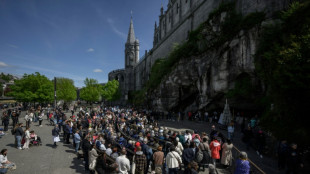
-
 Korir wins men's Boston Marathon, Lokedi upstages Obiri
Korir wins men's Boston Marathon, Lokedi upstages Obiri
-
China's CATL launches new EV sodium battery

-
 Korir wins Boston Marathon, Lokedi upstages Obiri
Korir wins Boston Marathon, Lokedi upstages Obiri
-
Francis, a pope for the internet age
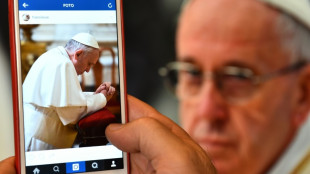
-
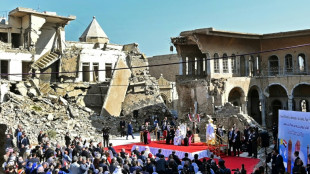 Iraq's top Shiite cleric says Pope Francis sought peace
Iraq's top Shiite cleric says Pope Francis sought peace
-
Mourners flock to world's churches to grieve Pope Francis
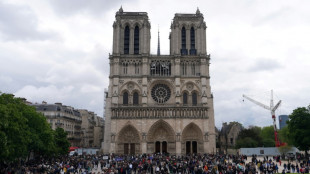
-
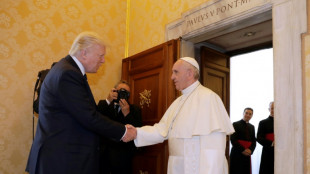 Trump says Pope Francis 'loved the world'
Trump says Pope Francis 'loved the world'
-
Sri Lanka recalls Pope Francis' compassion on Easter bombing anniversary
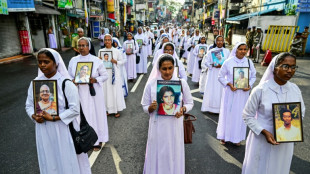
-
 Pope Francis inspired IOC president Bach to create refugee team
Pope Francis inspired IOC president Bach to create refugee team
-
Alexander-Arnold will be remembered for 'good things' at Liverpool: Van Dijk

-
 US VP Vance meets Indian PM Modi for tough talks on trade
US VP Vance meets Indian PM Modi for tough talks on trade
-
Pentagon chief dismisses reports he shared military info with wife

-
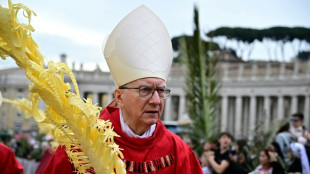 15 potential successors to Pope Francis
15 potential successors to Pope Francis
-
The papabili - 15 potential successors to Pope Francis
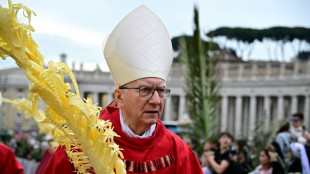
-
 Zhao sets up all-China clash after beating 2024 world snooker finalist Jones
Zhao sets up all-China clash after beating 2024 world snooker finalist Jones
-
Ostapenko stuns Sabalenka to win Stuttgart title

-
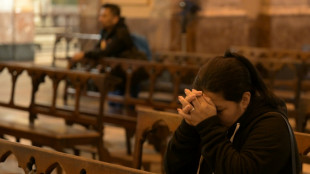 Argentina mourns loss of papal son
Argentina mourns loss of papal son
-
African leaders praise Pope Francis's 'legacy of compassion'
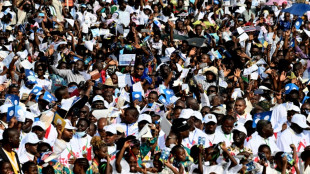
-
 Mehidy's five wickets help Bangladesh fight back in first Zimbabwe Test
Mehidy's five wickets help Bangladesh fight back in first Zimbabwe Test
-
'The voice of god': Filipinos wrestle with death of Pope Francis
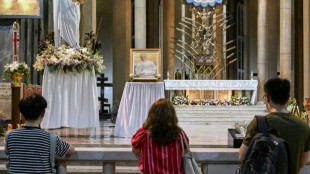
-
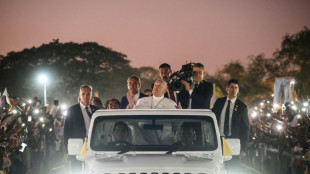 Prayers, disbelief in East Timor after Pope Francis death
Prayers, disbelief in East Timor after Pope Francis death
-
Real Madrid hold minute's silence as La Liga mourns Pope Francis

-
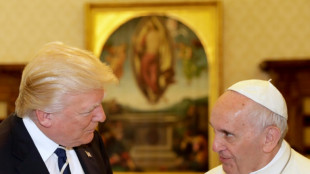 World leaders pay tribute to Pope Francis, dead at 88
World leaders pay tribute to Pope Francis, dead at 88
-
World leaders react to the death of Pope Francis
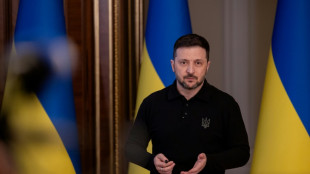
-
 Zimbabwe lead first Test despite Bangladesh spinner Mehidy's five wickets
Zimbabwe lead first Test despite Bangladesh spinner Mehidy's five wickets
-
Vatican postpones sainthood for 'God's influencer' after pope's death
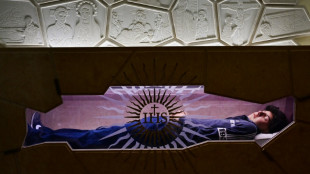
-
 Pope's death prompts CONI to call for sporting postponements, minute's silence
Pope's death prompts CONI to call for sporting postponements, minute's silence
-
Stunned and sad, faithful gather at St Peter's to remember Francis
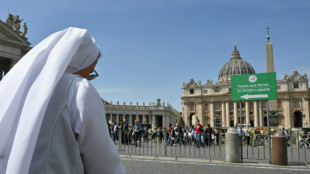

Black Death origin mystery solved... 675 years later
A deadly pandemic with mysterious origins: it might sound like a modern headline, but scientists have spent centuries debating the source of the Black Death that devastated the medieval world.
Not anymore, according to researchers who say they have pinpointed the source of the plague to a region of Kyrgyzstan, after analysing DNA from remains at an ancient burial site.
"We managed to actually put to rest all those centuries-old controversies about the origins of the Black Death," said Philip Slavin, a historian and part of the team whose work was published Wednesday in the journal Nature.
The Black Death was the initial wave of a nearly 500-year pandemic. In just eight years, from 1346 to 1353, it killed up to 60 percent of the population of Europe, the Middle East and Africa, according to estimates.
Slavin, an associate professor at the University of Stirling in Scotland who has "always been fascinated with the Black Death", found an intriguing clue in an 1890 work describing an ancient burial site in what is now northern Kyrgyzstan.
It reported a spike in burials in 1338-39 and that several tombstones described people having "died of pestilence".
"When you have one or two years with excess mortality it means that something funny was going on there," Slavin told reporters.
"But it wasn't just any year -- 1338 and 1339 was just seven or eight years before the Black Death."
It was a lead, but nothing more without determining what killed the people at the site.
For that, Slavin teamed up with specialists who examine ancient DNA.
They extracted DNA from the teeth of seven people buried at the site, explained Maria Spyrou, a researcher at the University of Tuebingen and author of the study.
Because teeth contain many blood vessels, they give researchers "high chances of detecting blood-borne pathogens that may have caused the deaths of the individuals," Spyrou told AFP.
- 'Big Bang' event -
Once extracted and sequenced, the DNA was compared against a database of thousands of microbial genomes.
"One of the hits that we were able to get... was a hit for Yersinia pestis," more commonly known as plague, said Spyrou.
The DNA also displayed "characteristic damage patterns," she added, showing that "what we were dealing with was an infection that the ancient individual carried at the time of their death."
The start of the Black Death has been linked to a so-called "Big Bang" event, when existing strains of the plague, which is carried by fleas on rodents, suddenly diversified.
Scientists thought it might have happened as early as the 10th century but had not been able to pinpoint a date.
The research team painstakingly reconstructed the Y. pestis genome from their samples and found the strain at the burial site pre-dated the diversification.
And rodents living in the region now were also found to be carrying the same ancient strain, helping the team conclude the "Big Bang" must have happened somewhere in the area in a short window before the Black Death.
The research has some unavoidable limitations, including a small sample size, according to Michael Knapp, an associate professor at New Zealand's University of Otago who was not involved in the study.
"Data from far more individuals, times and regions... would really help clarify what the data presented here really means," said Knapp.
But he acknowledged it could be difficult to find additional samples, and praised the research as nonetheless "really valuable".
Sally Wasef, a paleogeneticist at Queensland University of Technology, said the work offered hope for untangling other ancient scientific mysteries.
"The study has shown how robust microbial ancient DNA recovery could help reveal evidence to solve long-lasting debates," she told AFP.
W.Lapointe--BTB




